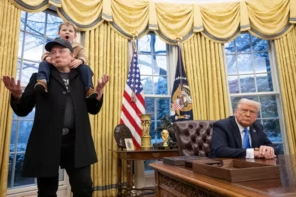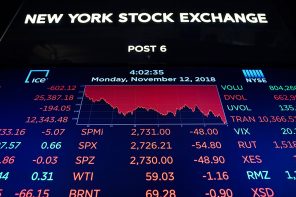On the 29th of September 2018, the U.S. Securities and Exchange Commission (SEC) released a statement announcing the resignation of Elon Musk as Tesla’s Chairman. The company reported that within the next 45 days they would replace him with an independent chairman with no substantial ties to the company.
Musk’s resignation as chairman can be traced back to his early-August tweet which reads, “(I) Am considering taking Tesla private at $420. Funding Secured.” While clearly alluding to a term popular in weed culture, the tweet supposedly mislead investors; this is because $420 per share would be the highest that Tesla stock has ever gone. By proclaiming $420 as the stock price Musk implied a record setting market cap for the company. The interpretation of Musk’s tweet could be seen as an manipulation of the market, overvaluing Tesla in the public-forum, potentially resulting in serious legal implications. This is not the only unusual behaviour Musk has exhibited in the past few months. From accusing Vernon Unsworth, a rescue diver who played the leading role in the Thai Rescue Operation, of being a “pedo guy”, to smoking a joint during his interview with Joe Rogan. Musk is perpetually generating bad press for both himself and his company.
From accusing Vernon Unsworth, a rescue diver who played the leading role in the Thai Rescue Operation, of being a ‘pedo guy’, to smoking a joint during his interview with Joe Rogan. Musk is perpetually generating bad press for both himself and his company.
Exacerbating the effect of the investigation, Musk released a series of tweets mocking the SEC, plunging Tesla’s stock price to an 18-month low, raising doubts regarding his abilities to hold the reins. “Just want to (say) that the Shortseller Enrichment Commission is doing incredible work. And the name change is so on point,” Musk tweeted on the October 4th, a taunting reference to the SEC.
So, what implications will Musk’s resignation have for Tesla? While the chairman and CEO positions are often a combined role, separating the jobs may in fact lead to better shareholder returns and corporate governance – experts even recommend doing so. Steve Diamond, an associate professor of law at Santa Clara University, says that the deal may have a positive effect on Tesla’s governance. “It will have an impact on the culture of the board, which won’t just be a cabal of Musk cronies…He’ll be forced to respond to a broader array of questions and concerns, and it could strengthen the monitoring and oversight.” Additionally, the SEC ordered that Tesla must implement compulsory procedures and controls to oversee all of Elon Musk’s communications regarding the company. This will include established guidelines for proper social-media usage, and hiring a securities lawyer who will oversee any statements made. By mitigating Musk’s social media presence, Tesla’s shares might do better than ever before.
Conversely, Diamond points out that Musk, despite not being able to lead the nine member board for three years, will continue to exert substantial influence over the company – of which he owns 22%. “As long as Musk is in the room, he’ll dominate through his ownership, and the idea that he’s indispensable to the company,” says Charles Elson, professor of business and corporate governance at University of Delaware.
The Financial Times recently reported that James Murdoch, who has already signaled an interest in the job, is being considered for the chairman position, despite his unfamiliarity with the industry. The market is curious to see if Murdoch, the acting CEO of 21st Century Fox, will be able to fill the void that Musk will leave behind. In the wake of recent events, Tesla is in dire need of some added stability at the top, which Murdoch seems best suited to provide.









Love the article! Keep it up